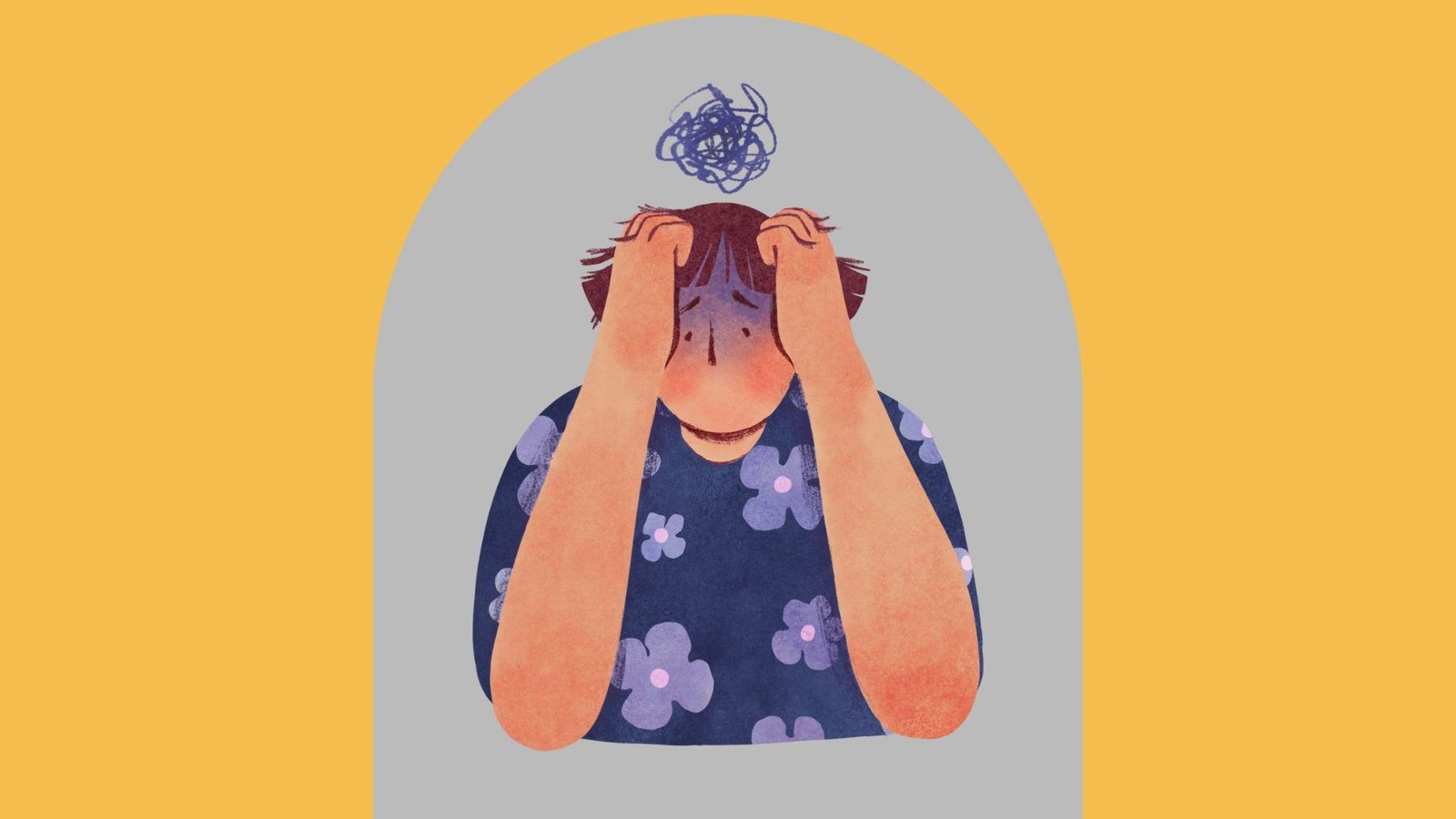Anxiety fatigue is a term used to describe the physical and mental exhaustion that often accompanies chronic anxiety. This condition can significantly impact one’s quality of life, affecting everything from daily activities to overall well-being. Understanding anxiety fatigue, its causes, symptoms, and how to manage it is crucial for anyone experiencing this challenging condition.
What is Anxiety Fatigue?
Anxiety fatigue is a state of exhaustion that results from prolonged anxiety. Unlike regular tiredness, which can be relieved by rest, anxiety fatigue is persistent and can be deeply debilitating. It arises because anxiety triggers a continuous state of heightened alertness and stress, draining the body’s resources over time.
Causes of Anxiety Fatigue
The primary cause of anxiety fatigue is chronic anxiety itself. When a person experiences anxiety, their body goes into a “fight or flight” mode, releasing stress hormones like cortisol and adrenaline. While this response is helpful in short bursts, long-term activation can lead to various physical and mental health issues, including fatigue. Here are some specific factors that contribute to anxiety fatigue:
- Hormonal Imbalances: Continuous stress and anxiety disrupt the body’s hormonal balance, particularly cortisol levels. This imbalance can lead to feelings of fatigue and exhaustion.
- Sleep Disruptions: Anxiety often interferes with sleep patterns, causing insomnia or poor-quality sleep. Lack of restorative sleep is a major contributor to fatigue.
- Mental Strain: Constant worrying and overthinking can exhaust the mind, leading to mental fatigue. The brain, like any other part of the body, can become tired from overuse.
- Physical Tension: Anxiety often causes physical symptoms such as muscle tension, headaches, and digestive issues, all of which can be draining and contribute to a sense of fatigue.
- Poor Lifestyle Choices: Anxiety can lead to unhealthy coping mechanisms, such as poor diet, lack of exercise, and substance abuse, all of which can exacerbate fatigue.
Symptoms of Anxiety Fatigue
Recognizing the symptoms of anxiety fatigue is the first step toward managing it. The symptoms can vary from person to person but often include:
- Physical Exhaustion: Feeling tired all the time, even after a full night’s sleep, is a common symptom. This exhaustion can affect daily activities and reduce overall productivity.
- Mental Fog: Difficulty concentrating, forgetfulness, and a sense of mental sluggishness are typical signs of anxiety fatigue. It can feel like the brain is “foggy” and unable to function properly.
- Mood Changes: Irritability, mood swings, and feelings of hopelessness or depression can accompany anxiety fatigue. These mood changes are often a result of the constant mental and physical strain.
- Physical Ailments: Chronic headaches, muscle pain, and digestive problems are common physical manifestations of anxiety fatigue. These symptoms can further drain energy levels and exacerbate fatigue.
- Sleep Problems: Difficulty falling asleep, staying asleep, or experiencing restful sleep are all signs of anxiety-related fatigue. Poor sleep quality perpetuates the cycle of fatigue.
How To Cope With Anxiety Fatigue
Managing anxiety fatigue involves addressing both the anxiety and the fatigue. Here are some effective strategies to cope with anxiety fatigue:
- Mindfulness and Relaxation Techniques: Practices like mindfulness meditation, deep breathing exercises, and progressive muscle relaxation can help reduce anxiety and promote relaxation, alleviating fatigue.
- Regular Exercise: Physical activity is a natural stress reliever and can boost energy levels. Even moderate exercise, such as walking or yoga, can make a significant difference in managing anxiety and fatigue.
- Healthy Diet: Eating a balanced diet rich in nutrients can support overall health and energy levels. Avoiding caffeine and sugar, which can disrupt sleep and increase anxiety, is also beneficial.
- Adequate Sleep: Prioritizing sleep hygiene is crucial. This includes maintaining a regular sleep schedule, creating a comfortable sleep environment, and avoiding stimulants before bedtime.
- Therapy and Counseling: Cognitive-behavioral therapy (CBT) and other forms of counseling can help individuals understand and manage their anxiety. Therapy provides tools and techniques to cope with anxiety and reduce its impact on daily life.
- Medication: In some cases, medication may be necessary to manage anxiety. Consulting with a healthcare provider can help determine if medication is appropriate and find the right treatment plan.
- Time Management and Self-Care: Learning to manage time effectively and prioritizing self-care can help reduce stress and prevent burnout. Taking regular breaks, setting realistic goals, and engaging in enjoyable activities are important aspects of self-care.
- Support Networks: Building a strong support network of friends, family, and support groups can provide emotional support and practical assistance. Sharing experiences with others who understand can be incredibly validating and relieving.
Long-Term Management and Prevention of Anxiety Fatigue
Long-term management of anxiety fatigue involves ongoing self-care and monitoring. Here are some tips for preventing anxiety fatigue:
- Regular Check-Ins: Regularly assessing your mental and physical health can help identify early signs of anxiety fatigue and address them promptly.
- Stress Management Techniques: Continuously practicing stress management techniques, such as mindfulness and relaxation exercises, can help maintain a balanced state of mind.
- Healthy Lifestyle Choices: Maintaining a healthy diet, regular exercise, and good sleep hygiene should be ongoing practices to support overall well-being.
- Professional Support: Periodic consultations with a mental health professional can provide ongoing support and adjustments to treatment plans as needed.
- Setting Boundaries: Learning to set boundaries in personal and professional life can help prevent overwhelming situations and reduce stress.
- Positive Mindset: Cultivating a positive mindset and practicing gratitude can improve overall mental health and resilience against anxiety.
Final Word From Blissed Men
Anxiety fatigue is a challenging condition that requires a comprehensive approach to manage effectively. By understanding the causes, recognizing the symptoms, and implementing coping strategies, individuals can reduce the impact of anxiety fatigue on their lives. Long-term management and prevention involve continuous self-care, healthy lifestyle choices, and professional support. With the right tools and techniques, it is possible to regain energy, improve mental clarity, and enhance overall well-being despite the challenges of anxiety fatigue.
Related Read

